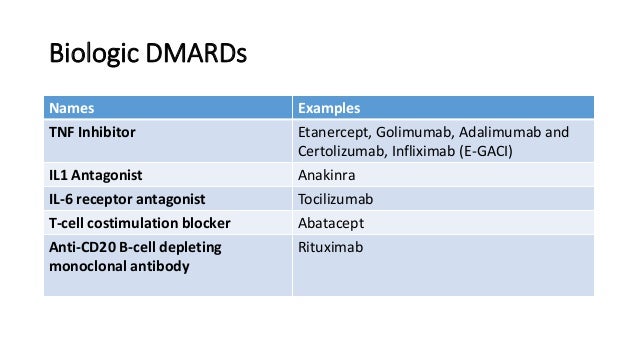- Published on
Arthritis-- Biological DMARDS
- Authors
- Name
- Jake Konigsberg
- Role
- Founder
Disease-modifying antirheumatic drugs (DMARDs) are a class of drugs which slow the progression of rheumatoid arthritis. While they are mainly geared towards rheumatoid arthritis, they also can work against other types of arthritis caused by autoimmune diseases. Autoimmune diseases often cause inflammation which occurs when the body attacks its own tissue. DMARDs target inflammation with them consisting of two categories of interest: traditional and biological. Traditional DMARDs target the whole immune system while biological DMARDs focus on specific steps in the inflammatory process.
DMARDs have been around for a while, but in more recent years, biological DMARDs, also known as biologics, have been developed. Biologics are often better treatments than traditional DMARDs. Since traditional DMARDs focus on suppressing the immune system as a whole, they can be dangerous as they can lead to an increased risk of infections as the immune system cannot defend the body against intruders. On the other hand, biologics are targeted and focus on a specific step in the inflammatory process, leaving the rest of the immune system alone. Therefore, while they can suppress parts of the immune system, biologics are not immunosuppressants and only weaken the immune system rather than shutting it off completely. Additionally, biologics are more targeted as they focus on a specific part of the inflammatory process which makes them more effective.
Biologics are a new and innovative way of treating the inflammatory effects of arthritis while leaving the immune system, for the most part, intact. Biologics can be delivered to a patient via injection or IV infusion. Common biologics include Humira and Remicade. For example, Humira works by binding to tumor necrosis factor (TNF) molecules, a common type of pro-inflammatory cytokines which means it induces inflammation, and blocking them from interacting with receptors on cells. By binding and blocking TNF from interacting with other cells once released from immune cells, Humira reduces inflammation by only tartgetting one specific area of the immune system, meaning the body can still fight against threats.
